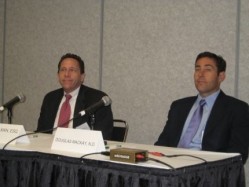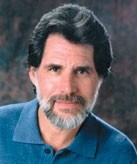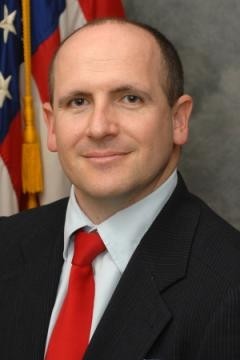Dispatches from SupplySide East
NDI guidance could be 'gamechanger' for supplements trade

While the FDA might still deliver a pleasant surprise to the trade in early July, “the general consensus is that this is not going to be a document that will make the industry happy”, Marc Ullman, a partner at legal firm Ullman, Shapiro and Ullman, told delegates at the SupplySide East show this week.
Under the 1994 Dietary Supplements Health & Education Act (DSHEA), firms are required to notify the FDA if they intend to market a dietary supplement in the US that contains a ’new dietary ingredient’ (which has not been marketed in the US dietary supplements market before October 15, 1994) and demonstrate that it is safe.
Dietary ingredients used in dietary supplements before this date were ‘grandfathered in’ and considered safe.
However, the prospect of new guidance that promises a more precise definition of NDIs is generating a lot of anxiety in the trade as firms fear that many grandfathered ingredients already on the market might in future be classified as NDIs, and therefore subject to the pre-market notification criteria, said Ullman.
Can the FDA cope with a flurry of retrospective NDI applications?
The Council for Responsible Nutrition’s (CRN’s) scientific and regulatory affairs chief Douglas ‘Duffy’ Mackay would not speculate over the percentage of 'old' ingredients that could potentially be affected by the new guidance.
However, CRN members feared there could be scores of retrospective filings for ingredients already on the market if changes in potency, extraction methods or solvents since 1994 meant the FDA would now treat them as NDIs, said Mackay.
“This could be a real game changer.”
Meanwhile, the FDA’s in-tray might also be swamped if synthetic ingredients that were chemically identical to their natural counterparts were to be classed as NDIs, or if the FDA decided that certain ingredients not considered NDIs on their own should be regarded as NDIs when combined with other active ingredients in new formulations, he warned.
“Say you’ve got a stimulant ingredient that is not an NDI. If you combine it with caffeine, where you could argue that you don’t know how it will behave, could that turn it into an NDI?
“And does the FDA have sufficient resources to deal with this [a potential flurry of NDI notifications submitted after the new guidance is issued]?
There was also concern over how the FDA will determine what was on the market on or before 1994, he said, given that it did not produce an official list of grandfathered ingredients when DSHEA came in, he said.
“Will they accept an old catalogue? What constitutes proof?”
Natural Products Association (NPA) boss John Gay said the biggest problem was uncertainty, adding: “Businesses don’t like uncertainty. They like to be able to plan ahead, and this guidance document has been talked about for a long time. We don’t know what’s in it, but from what we’ve been hearing, I don’t think we’re going to be altogether happy when we see it.”
What happens next?
The CRN had sought a meeting with the FDA recently to thrash out some of these concerns, but the FDA had declined, possibly because it was now too close to the date at which it must issue the guidance, or because stakeholders would have the opportunity to comment after it is published, said Mackay.









